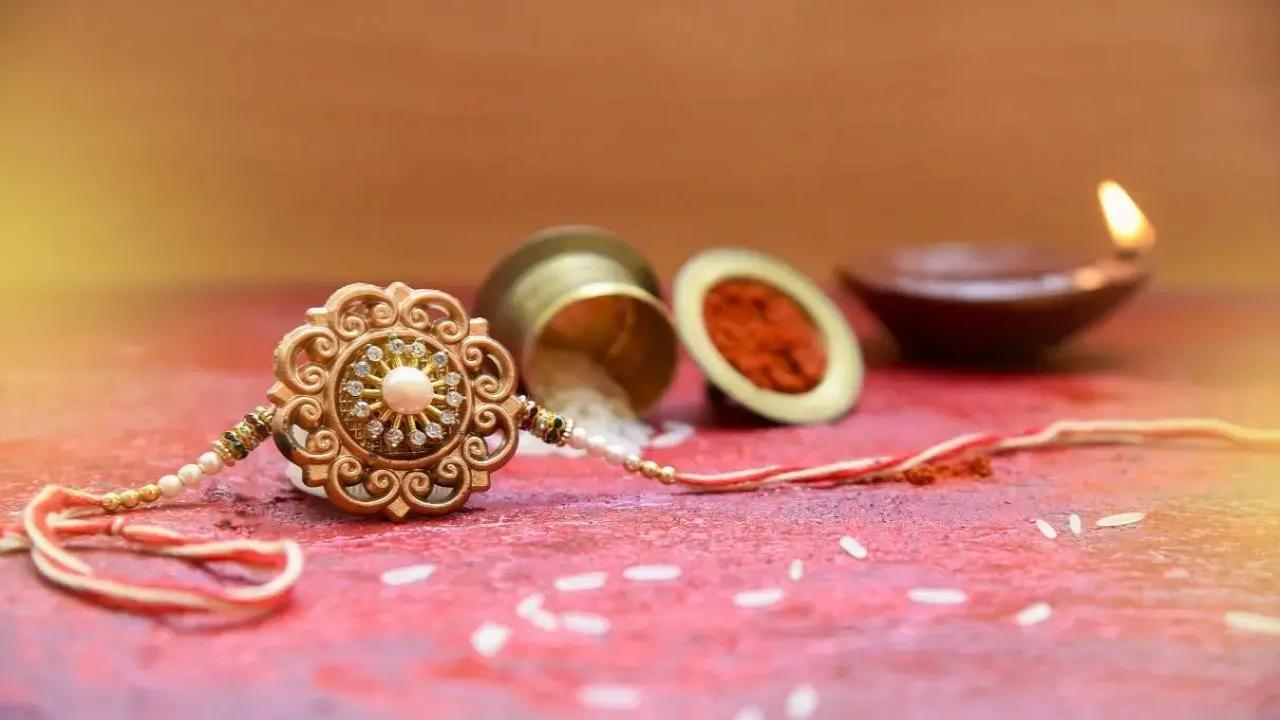Raksha Bandha: Thread of affection; tying hearts together on this auspicious festival

Representational picture
Raksha Bandhan is a traditional Hindu festival that celebrates the bond between brothers and sisters. It is usually observed on the full moon day of the Hindu lunar month of Shravana, which typically falls in August. The festival holds significant cultural and emotional importance, and it's marked by various rituals and customs. Some key features of Raksha Bandhan include:
ADVERTISEMENT
Rakhi: The central element of the festival is the rakhi, a decorative thread or bracelet that a sister ties around her brother's wrist. This symbolizes her love, prayers, and good wishes for his well-being and protection. Rakhi threads come in various colors, designs, and materials, often with beads, motifs, and embellishments.
Sisterly Affection: Raksha Bandhan celebrates the unique bond between siblings, particularly brothers and sisters. Sisters express their affection by tying the rakhi, and brothers reciprocate with gifts, promises of protection, and sometimes monetary offerings.
Gift Exchange: Apart from tying the rakhi, the festival also involves exchanging gifts between siblings. Brothers give gifts or money to their sisters as a token of their appreciation and love.
Prayers and Blessings: Sisters often perform aarti (a ritual involving a lamp) for their brothers and offer prayers for their well-being, prosperity, and success. Brothers, in turn, bless their sisters and promise to protect and support them.
Cultural Significance: Raksha Bandhan extends beyond blood relationships and can be observed between cousins, friends, and even neighbours. It emphasizes the importance of strong bonds, unity, and harmony in society.
Traditional Attire: On Raksha Bandhan, both brothers and sisters often dress in traditional attire, enhancing the festive spirit. Sisters might wear colourful outfits, and brothers might wear new clothes for the occasion.
Sweets and Feasting: Like many other festivals, Raksha Bandhan involves sharing sweets and special dishes. Families often come together to enjoy festive meals and indulge in various traditional sweets.
Emotional Connection: The festival fosters emotional connections between siblings, regardless of geographical distance. In cases where physical presence is not possible, sisters may send rakhis and gifts through mail or online means.
Cultural Traditions: Different regions of India have their own unique customs and rituals associated with Raksha Bandhan. These can include performing prayers, applying tilak (a mark) on the brother's forehead, and exchanging coconuts, flowers, or other symbolic items.
Modern Adaptations: In modern times, Raksha Bandhan has evolved to be more inclusive. It's not limited to just brothers and sisters; it's also a day to celebrate friendship and camaraderie. "Friendship Rakhis" are exchanged between close friends, and people tie rakhis to those they want to express their affection and bond with.
Overall, Raksha Bandhan is a celebration of the loving and protective relationship between siblings, marked by rituals, gifts, and emotional expressions of care and support.
 Subscribe today by clicking the link and stay updated with the latest news!" Click here!
Subscribe today by clicking the link and stay updated with the latest news!" Click here!







